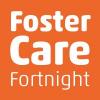Building strong and lasting bonds
Melissa Green is the director of operations for The Fostering Network. In this blog Melissa highlights the importance of stability in foster care and how our Mocking programme is delivering it.
It was with a mix of interest and concern that I read the news about the Children’s Commissioner’s new stability index which was launched last month. Interest because this is a really valuable piece of work that could help us identify and get to the heart of the systemic issues which increase the instability in the lives of looked after children. Concern because this work highlights that instability remains the key characteristic of the experience of our looked after children with 71 per cent of looked after children experiencing at least one major life change in the last 12 months.
This tool recognises what we all know to be true, that it is relationships, continuity and community that provide young people with stability (and the breaking of these relationships that does harm). Of those relationships, foster carers, teachers and social workers are key. However, it asks us not to look at each of these relationships in isolation but to look at the network that young people have around them and the impact on their lives when these are constantly changing.
This has been an area at the forefront of our minds over the last 12 months as we have developed the Mockingbird programme. If we know that the experience of looked after children is often characterised by change, how can we do things differently and create an environment where young people can develop meaningful and long-lasting relationships? The Mockingbird Family Model works by bringing families and professional teams together into one community, with strong and lasting relationships are at its heart. The role of the ‘hub carer’ – a source of support for young people and foster carers in the other ‘satellite’ households – provides stability, continuity and security.
Providing support and a breathing space
What we are seeing from Mockingbird is families and communities that are building strong and lasting bonds. Where placements are supported and there is ‘breathing space’ when it is needed. Where problems are shared and resolved together and relationships are made on many levels with families from across the community. Where young people have multiple strong and lasting relationships and where change is planned and supported. For The Fostering Network, Mockingbird offers something which goes to the heart of what the stability index is showing us: lasting relationships are what matter. As a result we want to work with our members and stakeholders from across the fostering community to explore how we can scale up the Mockingbird model to reach more families.
As we look ahead to the coming year, we have big plans for the Mockingbird programme across the UK. Each year we are bringing on-board new fostering service partners who will work with us to establish the Mockingbird model locally- not as a one-off intervention, but as a new approach to the way fostering is set up and how young people and foster carers are supported. We are not simply implementing a model developed in the US, but translating and developing it carefully in partnership with the fostering community to ensure it is tailored to the needs of our young people in the UK. I am delighted to share that we have a further 10 services who have joined the programme in the last few months and we have a rapidly growing community of interest from across the UK.
The speed of growth of the model is a testament to the fostering services and the hundreds of foster carers, children and young people who have been our trailblazers over the last two years - and I wanted to say a heartfelt thank you to them. They have shown the model can, and does, work and that there is an alternative to a system characterised by what the Children’s Commissioner described as young people ‘pinballing’ around the system. Our Mockingbird families have inspired us by building a strong fostering community that offers our looked after children the security, constancy and love of an extended family and a strong foundation for life.





